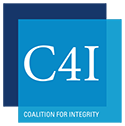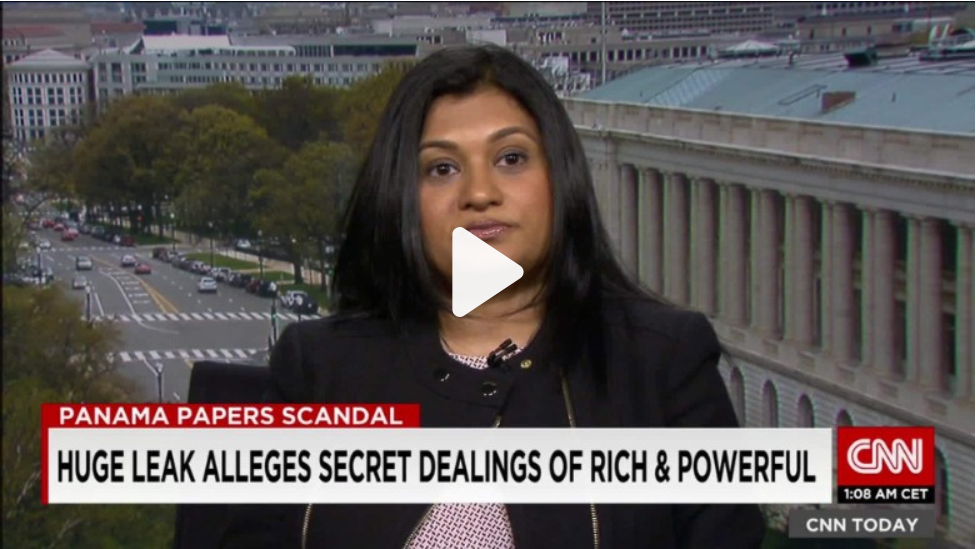Beneficial Ownership Transparency
| Every year, over two million corporations, LLCs, and other business entities are formed in the United States—with many states collecting less information from the individuals forming these entities than from people applying for a driver’s license. Information about natural persons who directly or indirectly exercise substantial control and persons who receive substantial economic benefits from the company/legal entity is not collected. This anonymity facilitates domestic and foreign corruption by allowing individuals to hide their identities and their corruptly obtained assets behind the façade of a U.S. corporation. Once a U.S. corporation is formed, it can easily open one or more bank accounts, wire money, buy property and engage in activities that launder the tainted funds. Moreover, anonymous entities can contribute to “Super PACs” (technically independent expenditure-only committees) and 501(c)(4) (tax exempt social welfare) entities without disclosing their beneficial owners.
In the past, the U.S. government pledged to increase transparency of companies formed in the United States in a number of international fora, the most recent in 2014 in the G20 High Level Principles on Beneficial Ownership transparency. |
Increased transparency was also part of the U.S. Government’s Third National Open Data Action Plan, last published in October 2015. But the Government has done little to actually implement these promises and, in fact, has postponed publishing the Fourth Action Plan until sometime in fall 2018. As a result, meaningful progress in the U.S. remains elusive. While there are legislative efforts to create transparency, nothing has changed to date.
There are several high-profile examples of abuse of the United States’ system. In 2019, the Treasury Department released a report on corruption in Venezuela. No-bid or low-bid contracts were awarded to shell companies incorporated in the United States, who would then act as intermediaries to give kickbacks to corrupt officials in the government. In recent reports on the Isabel dos Santos scandal, the daughter of Angola’s former president is alleged to have used shell companies in a variety of countries, including the United States, to embezzle state funds. And in Malaysia, corrupt officials diverted billions of dollars from the country’s Sovereign Wealth Fund and subsequently laundered through shell companies in the United States. The list of examples is long, and only covers those that have come to light. We do not know how many criminals use American shell companies to hide illicit assets, but we do know that our lack of beneficial ownership laws creates a significant obstacle for law enforcement to intervene.
In contrast, other international players have made significant strides to force transparency of legal entities. The United Kingdom, for example, enacted legislation in March 2015 that requires U.K. companies to keep a register of people with significant control over the company (those individuals who own or control more than 25 per cent of a company’s shares or voting rights or who otherwise exercise control over a company or its management). In 2016, the United Kingdom published the world’s first fully open register of beneficial ownership. The U.K. has also committed to introducing a register of overseas companies that own U.K. property. The U.K. Government recently announced that it would not oppose an amendment to that legislation, which would expand the scope to U.K. overseas territories, such as the British Virgin Islands and the Cayman Islands.
Just as significant, the European Union agreed to amend the Fourth Anti-Money Laundering Directive to strengthen the provisions requiring transparency of beneficial ownership. The amended directive, known as the Fifth Anti-Money Laundering Directive, requires Member States to 1) make public the beneficial ownership registers for legal entities, such as companies; 2) improve transparency on trusts for law enforcement, the professional sectors subject to Anti-Money laundering rules (e.g., banks, lawyers) and other persons who can demonstrate a legitimate interest; 3) improve connection of the beneficial ownership registers among EU Member States; and 4) lifting the anonymity on electronic money products (prepaid cards) in particular when used online.
Reforming our country’s laws related to this issue is essential to combating crime and protecting our national security. Broader collection of beneficial owners will prevent criminals from abusing our legal system to protect their ill-gotten assets, and help law enforcement fight money laundering and corruption.
The Coalition for Integrity believes it is crucial that we achieve the following goals in the U.S.:
- Require states to collect information about the beneficial owners of companies and trusts.
- Require the real estate industry to carry out adequate background checks to determine where the money used for luxury property comes from and identify the ultimate individual with a beneficial interest in the property.
- Require Super PACs and 501(c)(4) entities to determine and report the ultimate source of all their funders.
Our recent advocacy toward these goals includes the following:
- In February 2022, the Coalition for Integrity submitted comments to the Financial Crimes Enforcement Network (FinCEN) of the Treasury Department on a proposed rule that would address the vulnerability of the U.S. real estate market to money laundering and other illicit activity.
- Also in February 2022, the Coalition for Integrity submitted comments on notice of proposed rulemaking (NPRM) to implement the beneficial ownership reporting requirements in the Corporate Transparency Act (CTA).
- In May 2021, the Coalition for Integrity submitted comments to Financial Crimes Enforcement Network’s (FinCEN) advanced notice of proposed rulemaking (ANPR) to implement the beneficial ownership reporting requirements in the Corporate Transparency Act.
- Supporting incorporation transparency legislation in the U.S. Congress that would require states to collect beneficial ownership upon company formation. The Coalition supports legislation that would make progress on the issue of beneficial ownership transparency, and sent a letter along with several other groups in support of the Corporate Transparency Act (H.R. 2513). This bill passed the House in the fall of 2019. A letter was also sent to Senators Whitehouse, Grassley, and Feinstein to express support for the Senate version of the bill, the bipartisan True Incorporation Transparency for Law Enforcement (TITLE) Act (S. 1454). An additional companion bill, simply titled the Corporate Transparency Act of 2019 (S. 1978) has also been introduced in the Senate.
- In December 2017, the Coalition for Integrity submitted comments for the official record of the Joint Hearing entitled “Legislative Proposals to Counter Terrorism and Illicit Finance.” Our comments focused on the beneficial ownership section (Section 9) of the draft “Counter Terrorism and Illicit Finance Act.”
Our past advocacy has included:
- Urging the Department of the Treasury’s Financial Crimes Enforcement Network (FinCEN) to strengthen and finalize the rules proposed in 2014 requiring financial institutions to carry out appropriate due diligence to identify and verify the ultimate beneficial owners of legal entity customers. As a result of our advocacy, Treasury finalized the rules in May 2016 and the rules came into effect in May 2018.
- Urging FinCEN to close the loopholes in the current legal framework that allow corrupt individuals to launder money in the U.S. through anonymous real estate transactions. As a result of our advocacy, the U.S. Department of Treasury announced in January 2016 that it would begin a pilot project for identifying and tracking secret buyers of high-end properties in select markets. Since 2016, the Financial Crimes Enforcement Network (FinCEN) has been renewing the Geographic Targeting Orders (GTOs). The last one was issued in May 2020. C4I has asked Treasury to expand the program to the entire country and make it permanent. We also want Treasury to repeal the exemption granted in 2002 to persons involved in real estate settlements and closings from the Patriot Act requirement of implementing AML programs.


